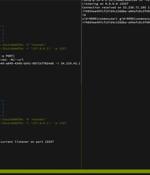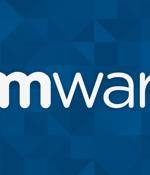Security News

OpenSSL 1.1.1 goes to version 1.1.1s, and patches one listed security-related bug, but this bug doesn't have a security rating or an official CVE number. OpenSSL 3.0 goes to version 3.0.7, and patches not one but two CVE-numbered security bugs that are official designated at HIGH severity.

Microsoft on Tuesday said it addressed an authentication bypass vulnerability in Jupyter Notebooks for Azure Cosmos DB that enabled full read and write access. The tech giant said the problem was introduced on August 12, 2022, and rectified worldwide on October 6, 2022, two days after responsible disclosure from Orca Security, which dubbed the flaw CosMiss. "In short, if an attacker had knowledge of a Notebook's 'forwardingId,' which is the UUID of the Notebook Workspace, they would have had full permissions on the Notebook without having to authenticate, including read and write access, and the ability to modify the file system of the container running the notebook," researchers Lidor Ben Shitrit and Roee Sagi said.

Analysts at Orca Security have found a critical vulnerability affecting Azure Cosmos DB that allowed unauthenticated read and write access to containers.Named CosMiss, the security issue is in Azure Cosmos DB built-in Jupyter Notebooks that integrate into the Azure portal and Azure Cosmos DB accounts for querying, analyzing, and visualizing NoSQL data and results easier.

IT service management software platform ConnectWise has released Software patches for a critical security vulnerability in Recover and R1Soft Server Backup Manager. ConnectWise's advisory notes that the flaw affects Recover v2.9.7 and earlier, as well as R1Soft SBM v6.16.3 and earlier, are impacted by the critical flaw.

Incoming OpenSSL critical fix: Organizations, users, get ready!The OpenSSL Project team has announced that, on November 1, 2022, they will release OpenSSL version 3.0.7, which will fix a critical vulnerability in the popular open-source cryptographic library. Apple fixes exploited iOS, iPadOS zero-dayFor the ninth time this year, Apple has released fixes for a zero-day vulnerability exploited by attackers to compromise iPhones.

Proof-of-concept exploit code is now available for a pre-authentication remote code execution vulnerability allowing attackers to execute arbitrary code remotely with root privileges on unpatched Cloud Foundation and NSX Manager appliances. The flaw is in the XStream open-source library used by the two VMware products and was assigned an almost maximum CVSSv3 base score of 9.8/10 by VMware.

There are no details yet, but it's really important that you patch Open SSL 3.x when the new version comes out on Tuesday. How bad is "Critical"? According to OpenSSL, an issue of critical severity affects common configurations and is also likely exploitable.

The OpenSSL Project team has announced that, on November 1, 2022, they will release OpenSSL version 3.0.7, which will fix a critical vulnerability in the popular open-source cryptographic library.According to the team's own risk classification, critical vulnerabilities in OpenSSL are those that affect common configurations and are likely to be exploitable.

VMware on Tuesday shipped security updates to address a critical security flaw in its VMware Cloud Foundation product. "Due to an unauthenticated endpoint that leverages XStream for input serialization in VMware Cloud Foundation, a malicious actor can get remote code execution in the context of 'root' on the appliance," the company said in an advisory.

VMware has released security updates today to fix a critical vulnerability in VMware Cloud Foundation, a hybrid cloud platform for running enterprise apps in private or public environments. The flaw is in the XStream open-source library used by Cloud Foundation and has an almost maximum CVSSv3 base score of 9.8/10 assigned by VMware.